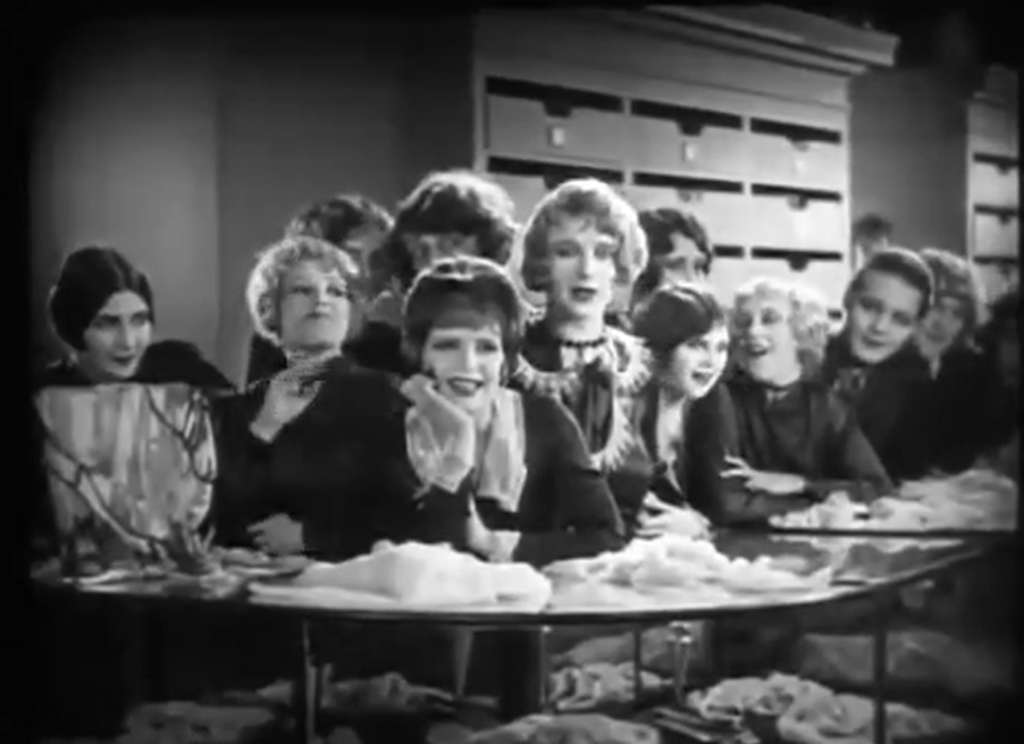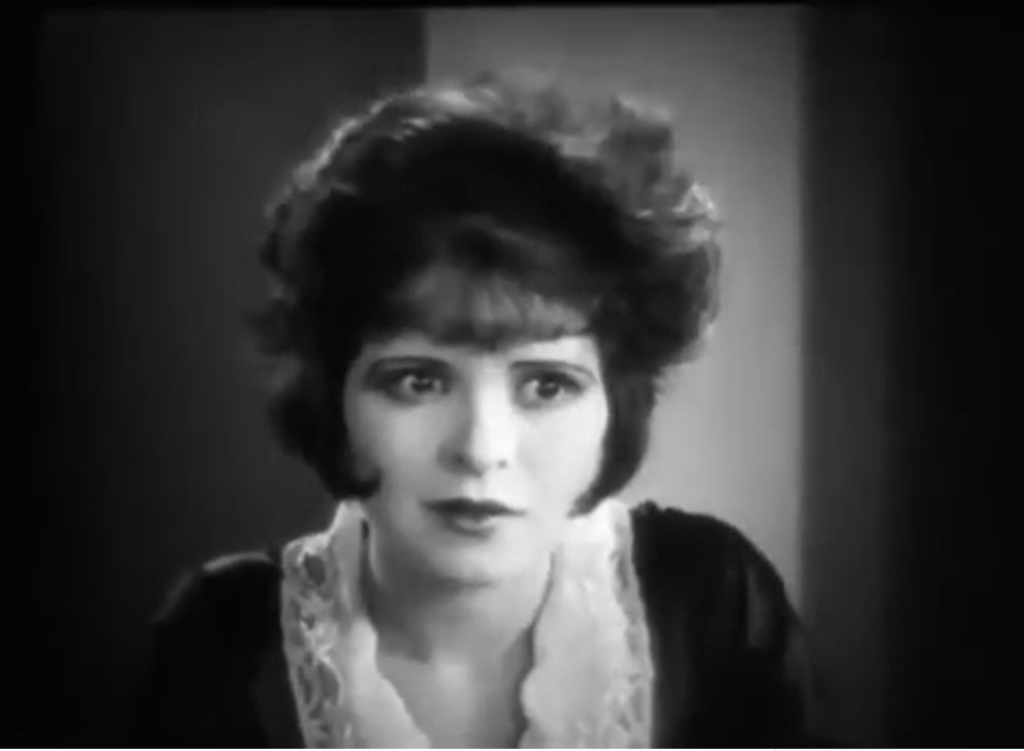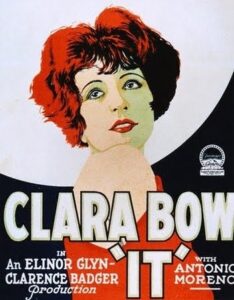|
Genres, Themes, Actors, and Directors:
- Clara Bow Films
- Cross-Class Romance
- Mistaken or Hidden Identities
- Morality Police
- Silent Films
Review:
Clara Bow (arguably cinema’s first sex symbol) is best known for her leading role in this iconic silent film, playing a shopgirl whose possession of “It” lands her an indirect opportunity to pursue the man of her dreams. While the narrative itself is not all that inventive (there’s little here we haven’t seen before in other romantic comedies), what makes the film worth a look is the presence of Bow, who starred in dozens of enormously popular flicks throughout the 1920s, but whose must-see filmography likely can be boiled down to this film and Wings (1927). I find Bow charming and cute, and understand her iconic status as the ultimate Flapper, but I’ll admit to not particularly understanding why she alone — among all the many beautiful shopgirls the camera pans during an early scene — epitomizes “It” (or at the very least, how one can know this from simply looking at her).

With that said, she does a fine job playing the film’s spunky, loyal heroine — a woman who willingly lies about being her roommate’s son’s mother, to prevent him from being taken away by authorities — and thus she eventually convinces us she’s very much an “It” girl worth desiring.
Note: Film fanatics interested in learning more about Bow’s tragic life story should check out the informative and compassionate 1999 documentary Clara Bow: Discovering the It Girl (narrated by Courtney Love).
Redeeming Qualities and Moments:
- Clara Bow as Betty Lou Spence

Must See?
Yes, simply to see Bow in her most iconic role. Listed as a film with Historical Importance in the back of Peary’s book.
Categories
- Historically Relevant
- Noteworthy Performance(s)
Links:
|



One thought on “It (1927)”
A must, for the three leading performances (esp. Bow’s) and for its unique place in cinema history.
It’s surprising the power this film has. Its title consists of just two letters, but potent letters they are!
The idea of the film is charm itself: you’ve either got “It” or you don’t. Bow’s performance (consisting of looks, style and attitude) makes her “It” rather clear. As described in the story, “It” is a combination of things – “It” is not just looks. “It” is basically everything about someone that, added up, gives that person “It”. And Bow does represent a combination. Unlike a number of stars who are most known for one overriding quality, Bow (at least in this film) is a mix, most notably, of Louise Brooks, Betty Boop and someone along the lines of Jean Arthur or Claudette Colbert. She’s a looker, she’s fun, and she’s not to be toyed with.
Not that Bow’s Betty Lou is a complete angel; she can be somewhat fiery. But, in the situation she’s in – one fraught with misunderstanding – it’s to be expected that she would fight against things. One can’t help but take sharp note of what society was dictating at the time: after Moreno believes Bow has a child, he (even though infatuated with her) quickly places her in his mind in the category of “fallen woman” (i.e., the kind you can still have feelings for, perhaps, but only in a “back street” arrangement). It’s interesting that a Latin actor was chosen for this role: as a result, somehow Waltham’s desire for Betty Lou is that much more passionate. Watch Moreno closely and, at times, it seems it’s all he can do to hold back from making Betty Lou his own (whether she’s a “good girl” or not).
Also in the mix here is the refreshing inclusion of William Austin. It is clearly and unapologetically established in an early scene that Austin’s Monty is gay. (Reading the magazine article on what gives someone “It”, Austin reads the following: “Mothers spoil boys with ‘It’ – women never refuse them favors.” His response to himself in a mirror is, “Old fruit, you’ve got ‘It’!”) At this time in cinema, a character of this sort might appear but would not have the screen time Austin is given. He basically is playing an Eve Arden role (of sorts) and, as such, is still given more screen time.
Overall, “It” is quite enjoyable from start to finish – with an unusual climax, ending with a delightful visual joke.